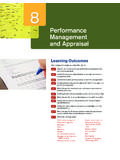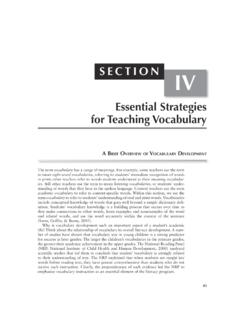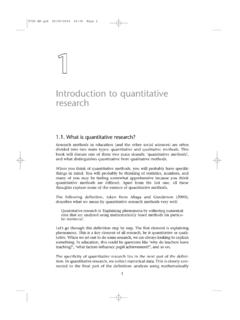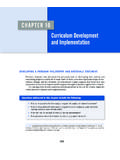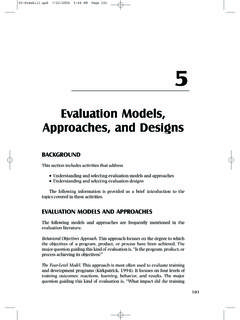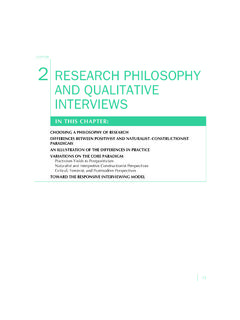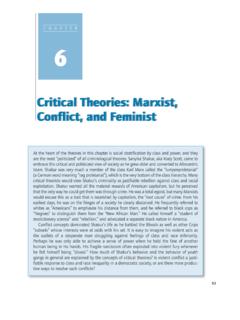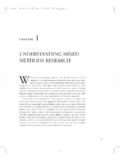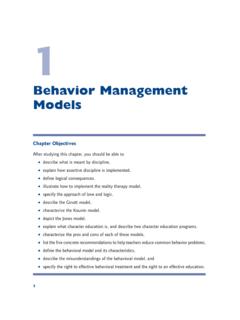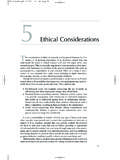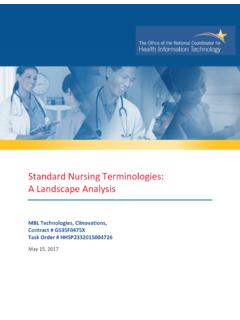Transcription of Effective Mentoring
1 1 Effective MentoringIntroductionOne of the key mechanisms for facilitating learning for healthcare profession students while on practice placements is Mentoring . This mechanism is pretty much well established now, and is indeed a very important component of pre-registration education programmes, albeit using a handful of different titles by different health and social care professions. Policy documents such as Standards to Support Learning and Assessment in Practice (NMC, 2008a) provide firm indi-cation of the criteria that healthcare professionals have to meet to use the title mentor , and details the capabilities that they need to fulfil the role effectively. The first chapter of this book focuses on Mentoring as a concept in its own right, defines and differentiates it from similar and overlapping roles and titles, examines the various reasons for Mentoring and explores how to mentor effectively.
2 It also examines poor Mentoring and how it can be outcomesOn completion of this chapter, you should be able to:1 Distinguish between Mentoring and similar roles that support learning for healthcare profession students and Explain a range of reasons for requiring mentors for facilitating students acquisition of professional competence and the associated knowledge base in practice Identify and evaluate a number of factors that can enable Effective Mentoring , including the characteristics of Effective mentors, and the ability to build sound mentor mentee working Analyse the likelihood and effects of poor or adverse Mentoring , and the actions that can be taken where it is likely to Analyse a number of approaches, guidelines and frameworks for enabling informed and systematic 808/02/2011 4:45.
3 33 PME f fE c tI v E ME n t o rI n g9 The chapter thus examines a wide range of perspectives on Mentoring itself, and also focuses on the NMC s (2008a: 50) domain establishing Effective work-ing relationships . The related mentor competence is: Demonstrate Effective relationship building skills sufficient to support learning, as part of a wider inter-professional team, for a range of students in both practice and academic learning environments ; and the NMC s outcomes for this competence are: Demonstrate an understanding of factors that influence how students integrate into practice settings. Provide ongoing and constructive support to facilitate transition from one learning environment to another. Have Effective professional and interprofessional working relationships to support learning for entry to the concept of Mentoring Mentoring as a concept and practice that is related to facilitating professional learning in healthcare has evolved consistently since the 1970s and was for-mally implemented in pre-registration nursing and midwifery education in the 1980s.
4 Slightly different titles and terminologies are used by different healthcare profes sional groups for this role, and different definitions have been offered over time as research and expert opinions have influenced the forms in which it is currently utilised. It is generally well documented, for example in the Shorter Oxford English Dictionary (Brown, 2002: 1747), that the term mentor originates from the Greek classical story, The Odyssey, in which King Odysseus called upon a trusted friend named Mentor to act as the guide and advisor to his young son Telemachus when he left for another country to fight a war. The word men-tor also relates to the Latin word mens that is, pertaining to, or occurring in the mind (Simpson and Weiner, 1989: 614). The term has gradually evolved to signify a designated person who dedicates some of their time to help indi-viduals to learn during their developmental years, to progress towards and achieve maturity and establish their identity.
5 It has been imple mented as a formal role in nurse education to direct focus on enabling students to gain safe and Effective clinical practice skills during practice placements. This sec-tion disentangles the con cept of mentor from similar titles by exploring the differences and similarities between them. Distinguishing between the mentor s and related rolesThe mentor role is just one of several that support learning in practice settings, and therefore there is some overlap in certain aspects of such roles, such as in 908/02/2011 4:45:33 PMME n t o rI n g a n d S u pE r vI S Io n I n HE a l tHc a rE10the characteristics of the appropriate personnel who support learning, but there are distinct boundaries as well. A study conducted by Carnwell et al. (2007), for instance, to explore the likely differences in the roles of mentors, lecturer-practitioners and link tutors indicate that mentors tend to focus principally on individual students, lecturer-practitioners on the learning environment , and link tutors on knowledge acquisition and fulfilling course requirements.
6 Activity Different education support roles and functions to begin with, make notes on what you think are the meanings and functions of the following roles: mentor, preceptor, clinical supervisor, assessor and other similar roles you have encountered, and the differences between them. You are likely to have identified a variety of roles that enable or support learning for students and other learners in practice settings, which might include practice facilitators and even the university-based course tutor. Thus, although there are common elements in the definitions, scope and remit of mentor and similar roles, there are also differences. The most popular learning support roles are examined Beside the helping function during developmental years indicated by dictionary defi nitions of the term mentor, as a result of research by Phillips et al.
7 (2000) on behalf of the then English National Board for nursing , Midwifery and Health Visiting, the Department of Health (DH) (2001a: 6) redefined the mentor as a nurse, midwife or health visitor who facilitates learning, super-vises and assesses students in the clinical setting . Prior to this, the mentor was a registrant who facilitated learning, and the assessor was another registrant who assessed students is defined similarly by the NMC (2008a: 45) as a registrant who has met the out comes of Stage 2 ( those of a qualified mentor) and who facilitates learning, and supervises and assesses students in practice settings. The DH s (2001a) definition resulted from a range of issues related to men-toring and assessing pre -registration student nurses and midwives during practice placements that had been identified by Phillips et al.
8 S (2000) research and other earlier studies ( White et al., 1993). At that time, Spouse (2001a) found that the terms mentorship , preceptorship and supervision were being used synonymously, while White et al. (1993) had earlier found that 1008/02/2011 4:45:33 PME f fE c tI v E ME n t o rI n g11mentors themselves were unclear about their roles due to insufficient educa-tional preparation. Going beyond definitions of mentor, the NMC (2008a) identifies a range of day-to-day functions of the mentor in terms of 26 outcomes that are grouped under eight domains (which form the major focus of this book). However, research on Mentoring ( by Kerry and Mayes, 1995) indicate that definitions of mentor need to include: nurturing; role modelling; functioning (as teacher, sponsor, encourager, counsellor and friend); focusing on the professional development of the mentee; and sustaining a caring relationship over time.
9 A concept analysis of the mentor role by Billay and Yonge (2004: 573) across several health, non-health and social care professions indicates that its defining attributes include being a role model, being a facilitator, having good com-munication skills, being knowledgeable about the field of expertise, and need-ing to understand the principles of adult education . It has to be noted at this point that although the term mentor is clearly defined in UK policy documents, in particular by the NMC (2008a) and the DH (2001a), mentor is defined differently in nursing in other countries, such as in Canada (Billay and Yonge, 2004), and even in the UK in the medical profession (General Medical Council (GMC), 2010), in that it refers to qualified healthcare professionals being mentored by more experienced mutually selected colleagues.
10 Also, in some UK professions, psychologists, the term prot g is used when referring to the mentee ( Barnett, 2008).PreceptorAs the term most closely related to mentor, the NMC (2006a) identifies pre-ceptors as first-level registrants who have had at least 12 months (or equiva-lent) experience within the same area of practice as the practitioner requiring support, and will normally have completed a mentor or practice teacher edu-cational preparation programme. The NMC indicates that the preceptor and the preceptee should agree between themselves the nature of their working relationship and the desired outcomes. It should be noted, however, that pre-ceptorship is not clinical supervision, which in the UK refers to structured peer support for, and by, registrants throughout their preceptor role emerged from the realisation that for newly qualified nurses, the transition from being a student to becoming a registered health-care professional is a major leap in responsibility and accountability.
